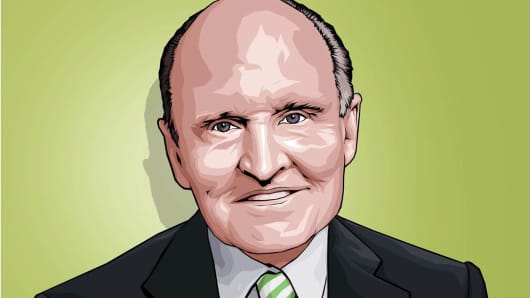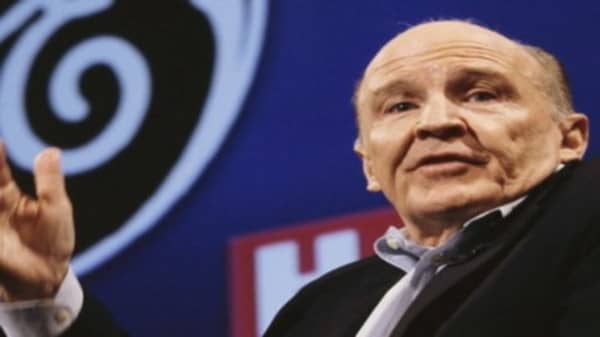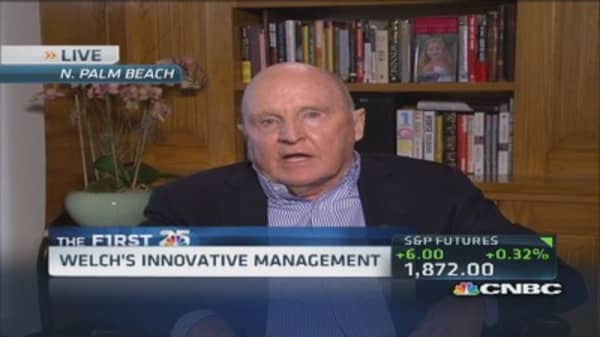Former chairman and CEO, General Electric
Born: Nov. 19, 1935, Peabody, Mass.
Education: Bachelor's in chemical engineering, University of Massachusetts Amherst; master's and Ph.D., University of Illinois at Urbana-Champaign
An employee-manager rather than an owner-entrepreneur, John F. "Jack" Welch is a rarity on our anniversary list of the most transformative leaders, icons and rebels of the past quarter-century. Yet as chairman and CEO of General Electric, he defined American corporate management in the late 20th century through innovative leadership and his forceful, down-to-earth style. As Warren Buffett is to investing, so Welch is to the corner office.
Trained as a chemical engineer, Welch joined GE Plastics in Pittsfield, Mass., in 1960 after earning his Ph.D. Despite early misgivings about GE's bureaucracy that almost made him leave the company, Welch rapidly rose up the ranks. By 1972, he had become a vice president and within five years was a senior vice president. Two years later, he was one of three vice chairmen to audition to succeed the highly regarded Reginald Jones in the top job.










































